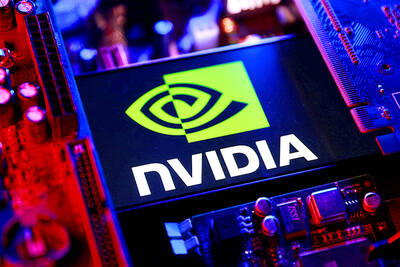World oil prices hurtled higher again on Friday as the US and Britain set a March 17 ultimatum for Iraq to disarm or face war.
A revised draft resolution circulated by British Foreign Secretary Jack Straw at the UN, backed by Washington, gives Baghdad 10 days to meet UN demands.
The two allies during that time hope to garner support in the bitterly divided 15-member UN Security Council for military action against Iraq, which ships around 4 percent of world oil exports.
US light crude climbed US$0.78 to US$37.78 a barrel, barely US$2 short of a recent 12-year high. Brent crude futures rose US$0.57 to US$34.10 a barrel, a two-year high.
"News of that deadline is certainly keeping the market very strong," said broker Christopher Bellew of Prudential Bache in London.
"Any final deadline will give the market another shove to the upside," said Tom James of broker Carr Futures.
Oil prices have already jumped 20 percent this year on fear that war in Iraq will hit exports from the Middle East, which pumps a third of the world's oil. Concern is growing that rising energy costs will further strain a weak economy.
An oil workers' strike in nearby Venezuela, and strong heating demand in a bitter northern winter has already drained US fuel stocks. The government warned on Thursday that gasoline prices would hit record levels this summer.
Saudi Arabia, the biggest producer in the OPEC cartel, has said it will raise production to meet any shortfall international market

POWERING UP: PSUs for AI servers made up about 50% of Delta’s total server PSU revenue during the first three quarters of last year, the company said Power supply and electronic components maker Delta Electronics Inc (台達電) reported record-high revenue of NT$161.61 billion (US$5.11 billion) for last quarter and said it remains positive about this quarter. Last quarter’s figure was up 7.6 percent from the previous quarter and 41.51 percent higher than a year earlier, and largely in line with Yuanta Securities Investment Consulting Co’s (元大投顧) forecast of NT$160 billion. Delta’s annual revenue last year rose 31.76 percent year-on-year to NT$554.89 billion, also a record high for the company. Its strong performance reflected continued demand for high-performance power solutions and advanced liquid-cooling products used in artificial intelligence (AI) data centers,

SIZE MATTERS: TSMC started phasing out 8-inch wafer production last year, while Samsung is more aggressively retiring 8-inch capacity, TrendForce said Chipmakers are expected to raise prices of 8-inch wafers by up to 20 percent this year on concern over supply constraints as major contract chipmakers Taiwan Semiconductor Manufacturing Co (TSMC, 台積電) and Samsung Electronics Co gradually retire less advanced wafer capacity, TrendForce Corp (集邦科技) said yesterday. It is the first significant across-the-board price hike since a global semiconductor correction in 2023, the Taipei-based market researcher said in a report. Global 8-inch wafer capacity slid 0.3 percent year-on-year last year, although 8-inch wafer prices still hovered at relatively stable levels throughout the year, TrendForce said. The downward trend is expected to continue this year,

A proposed billionaires’ tax in California has ignited a political uproar in Silicon Valley, with tech titans threatening to leave the state while California Governor Gavin Newsom of the Democratic Party maneuvers to defeat a levy that he fears would lead to an exodus of wealth. A technology mecca, California has more billionaires than any other US state — a few hundred, by some estimates. About half its personal income tax revenue, a financial backbone in the nearly US$350 billion budget, comes from the top 1 percent of earners. A large healthcare union is attempting to place a proposal before

‘BASICALLY A BAN’: Sources said the wording governing H200 imports from officials was severe, but added that the regulations might change if the situation evolves Chinese customs authorities told customs agents this week that Nvidia Corp’s H200 artificial intelligence (AI) chips are not permitted to enter China, three people briefed on the matter said. Chinese government officials also summoned domestic technology companies to meetings on Tuesday, at which they were explicitly instructed not to purchase the chips unless necessary, two of the people and a third source said. “The wording from the officials is so severe that it is basically a ban for now, though this might change in the future should things evolve,” one of the people said. The H200, Nvidia’s second-most powerful AI chip, is one